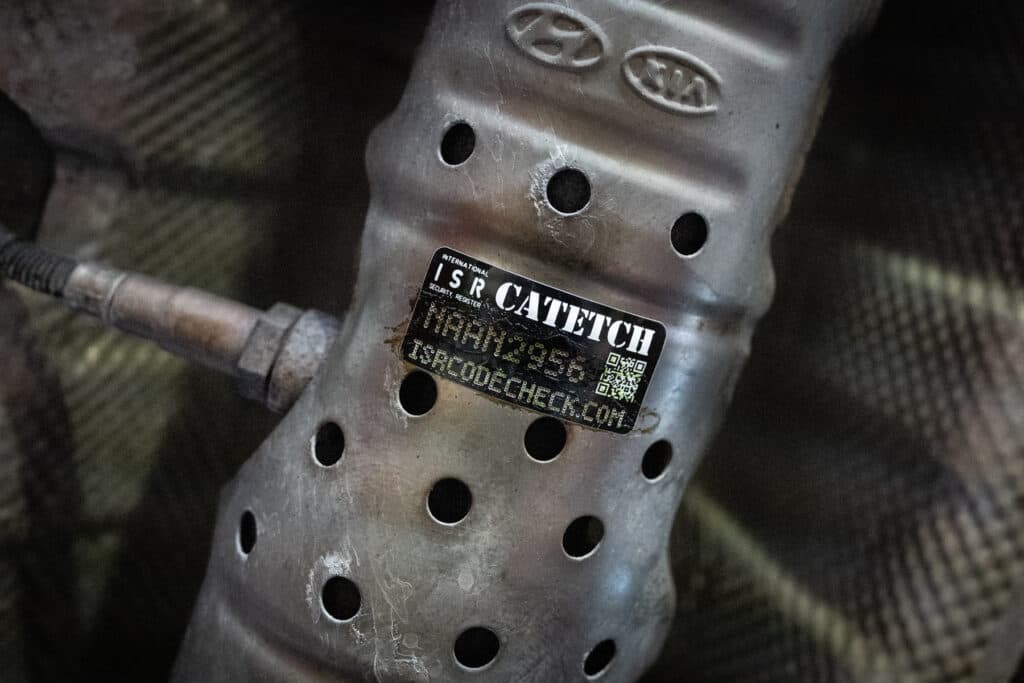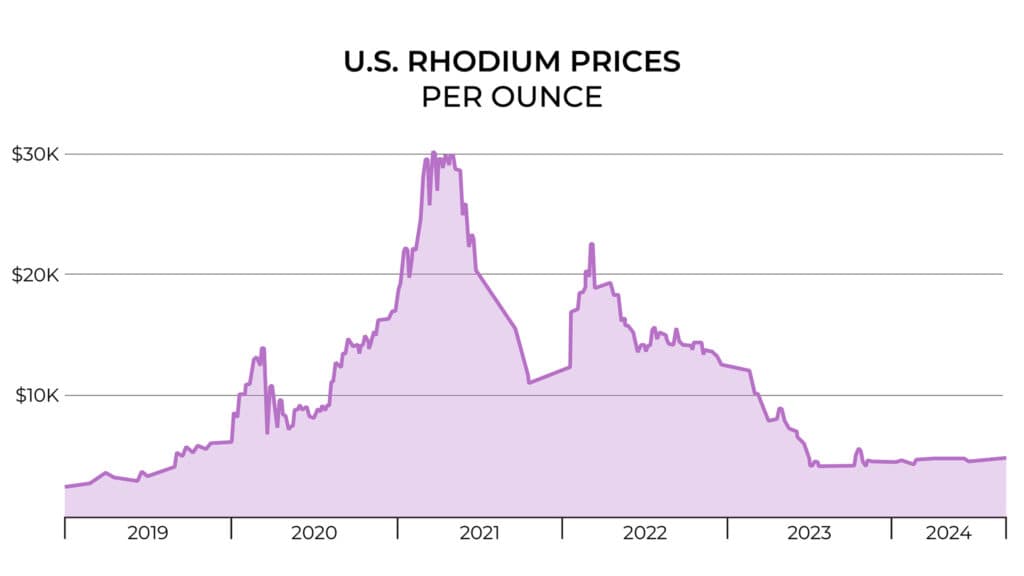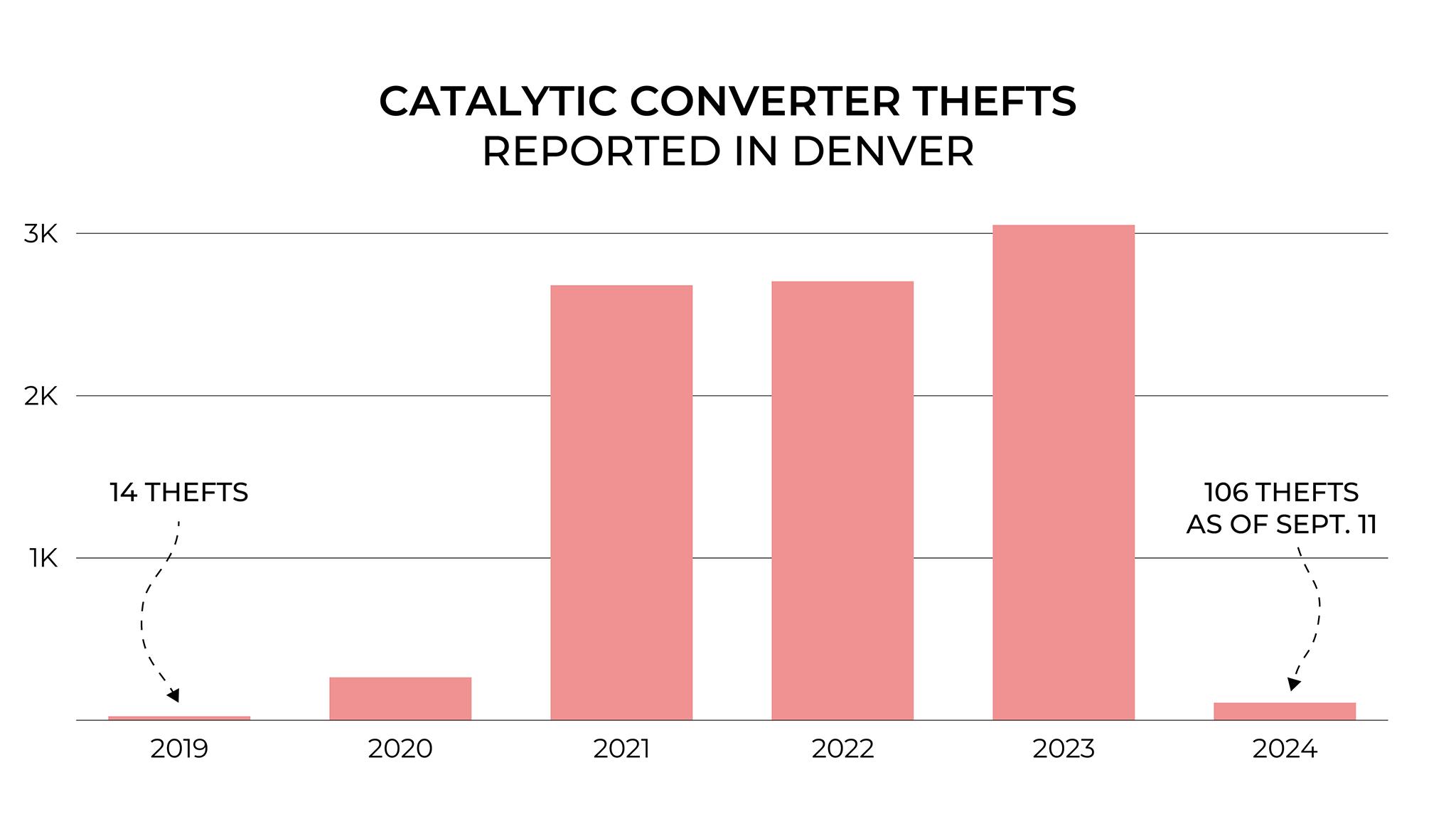Catalytic converters were black-market goldmines over the last few years.
Back in 2019, the Denver Police Department recorded just 14 stolen. By 2023, that number had skyrocketed to 3,037. More than a third of those went missing from parking lots around the airport that year. The devices, which are on the bottom of gasoline-burning cars, use precious metals to suck pollution out of exhaust.
But there's good news for people who park cars. So far in 2024, only 106 converters have been reported stolen, a 95% drop so far compared to 2023.
The changes come after local and state leaders passed new laws to crack down on sales of stolen auto parts. The market is playing a role too: Prices for precious metals used in converters have dropped.
Local police say new laws are working.
"While it is difficult to point to any specific causes for the decrease, there have been several initiatives that could have contributed to the reductions," a department spokesperson wrote us.
Back in 2022, the city passed a new law. It requires secondhand dealers and auto parts recyclers to check ID cards and record information about people trying to sell catalytic converters. That makes it harder to unload stolen goods. Similar requirements were signed into state law that year.
Luis Carrasco knows all about those new rules. He's operated a scrap recycling company in Globeville for the past three years, and said the new requirements be a little awkward — especially because he's supposed to take photos of people who get paid over $300 in cash for catalytic converters that they bring to his yard. He showed us a few, with people smiling while holding their newly earned greenbacks.
"It's kind of weird, when I tell a person I need to take your photo. I don't like doing that, but I have to do that," he said.

Some would-be customers still "cry" about the rules, he said. They may not want their photo taken, or to have the time and date of their visits recorded, or to be paid with a check (which the authorities have encouraged.) For a few months, he said, police told him to stop buying catalytic converters from the public altogether; he has some corporate clients, but it was a rough hit for his business.
"It was hard," he said. "We were super slow for a few months."
We also visited the Denver Scrap Metal Recycle Center, which is also in Globeville, where we were told they stopped buying converters altogether about six months ago, to avoid any shady deals.
DPD's spokesperson also said the department held events to help people etch identifying info onto their converters, should they be stolen, and "teamed up" with the airport to watch over travelers' cars.
But enforcement is not the whole picture.
Carrasco, and another exhaust professional we met while knocking warehouse doors in Globeville, pointed out that market prices for catalytic converters' precious metals have dropped, too.
One of those metals, rhodium, was fetching almost $30,000 per ounce in 2021. Today, it's down to about $4,800, according to one industry tracker.

That market shift has been cited as a reason for fewer thefts across the country and also in Canada.
Carrasco said those lower prices are also affecting his business, but he's happy that thefts have subsided.
Police told him that he could start buying gear from regular people again, as they've paid his yard fewer visits to look for stolen metal.
"Not no more, because of the new laws," he said. "It did drop a lot."

